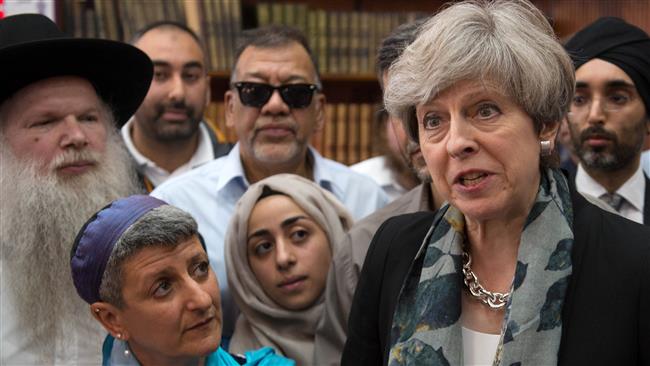
RNA - The Citizens Commission on Islam, Participation & Public Life, chaired by prominent Tory figure and former UK attorney general Dominic Grieve, published a study on Muslim communities and their integration in everyday life on Monday.
Dubbed The Missing Muslims – Unlocking British Muslim Potential for the Benefit of All, the report offers a range of recommendations to prevent further alienation of Muslim communities in the wake of the recent terror attacks in London and Manchester.
"The response to those attacks; with communities coming together in unity and defiance demonstrates why the recommendations in this report should be actioned as a matter of priority, so the UK can build on the positive work already happening," the report said.
May has blamed the terror attacks on “evil Islamist extremism,” pledging to fight this “perversion” of Islamic teachings.
Anti-Muslim hate crimes across the UK have been on the rise following the attacks.
The report noted that Muslims, who make up 4.4 percent of the UK population, are the largest and fastest-growing minority faith group. There are over 200 Muslim members in local governments while 15 MPs have a Muslim background.
It also found that around 72 percent of Muslims had voted in an election over the past 12 months.
However, in the public discourse the relatively large community is often referred to as either a disadvantaged group or as "a threat within."
The study particularly calls for a review of the Prevent program, an anti-radicalization initiative championed by May during her tenure as home secretary.
Introduced with the 2015 Counter Terrorism and Security Act, the program and its over-exaggerated image of radicalism resulted in a wave of maltreatment against Muslims and prevented Muslim students from voicing their opinions in lectures and seminars for fear of being accused of extremism.
According to Grieve, British Muslims have mixed views about the extent to which they have equal status or access to equal opportunities in the UK.
This while polls indicate a fundamental skepticism across wider British society towards Muslims and the way they are integrated into the community.
This dynamic, according to the study, "makes the need for action to break down barriers and bring people together even more necessary.”
847/940